'The greatest show on earth': Looking back on Sydney 2000
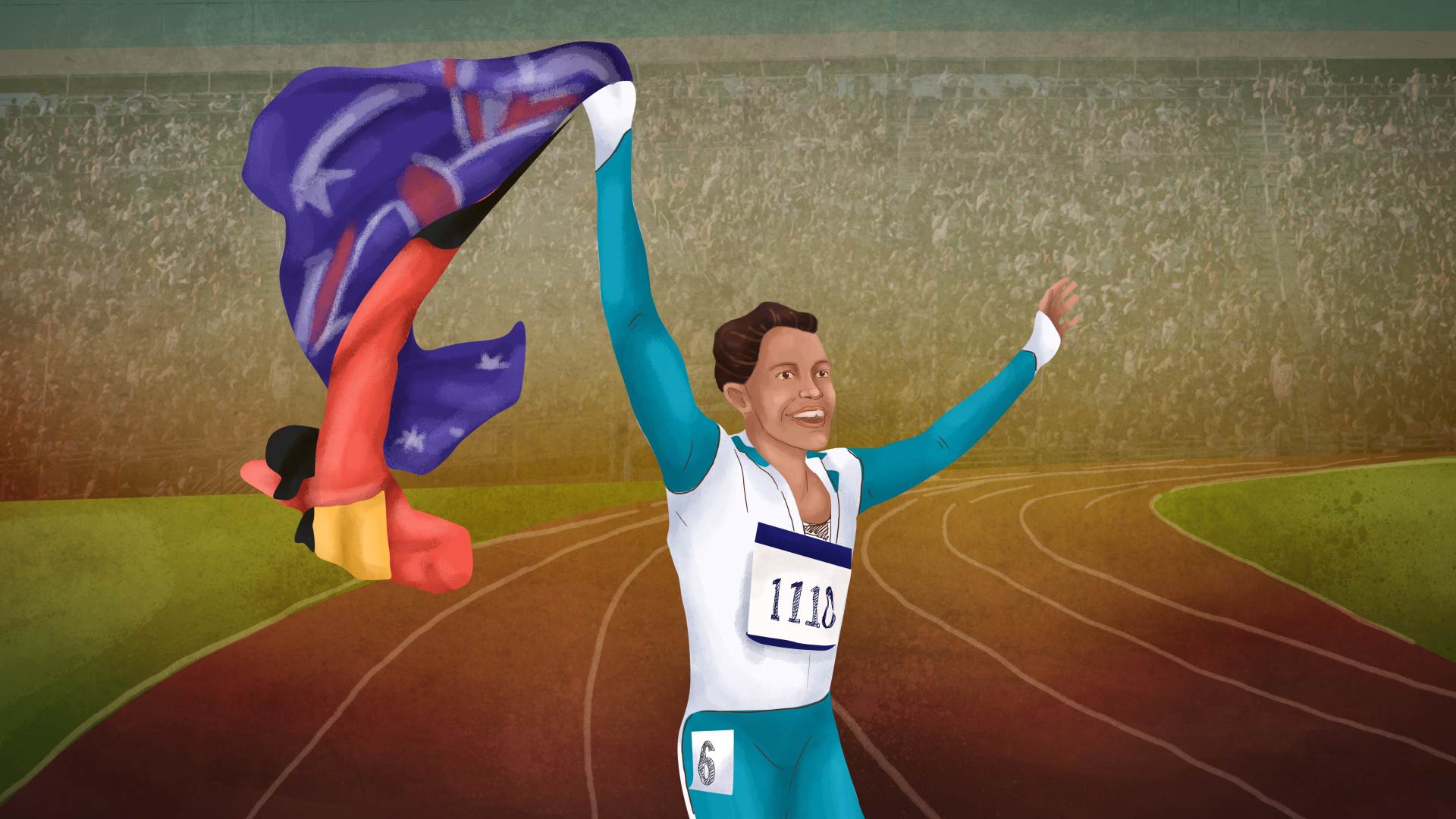
20 years on, Indigenous athletes remember the highlights, the challenges and the lessons learned from the Sydney Olympic Games and, of course, the race that 'stopped the nation' in 2000 - Cathy Freeman's gold medal moment.
Written by: Keira Jenkins
Produced by: Jack Latimore, Lindy Kerin and Daniel Gallahar
Illustrations by: Bridget Acreman
Many Australians remember the exact moment 20 years ago that Cathy Freeman won gold in the 400m at the 2000 Sydney Olympics.
It’s been described as having “stopped the nation”.
The Point co-host John Paul Janke was working behind the scenes for ATSIC’s preparations for Sydney 2000, and clearly remembers the moment he saw Cathy Freeman cross the finish line.
John Paul was watching from a big screen at Sydney’s Darling Harbour and remembers the excitement buzzing through the crowd when Cathy won.
“I was down there with about 30,000 other people and basically everyone just stopped when that race came on and for 49.11 seconds people did not say a word,” he told NITV’s Take It Blak podcast.
“It was only after she took a couple of steps past the finish line that people got up and cheered and cried and screamed.”
For John Paul, it was not just that moment in the 2000 Olympics that made history, he said the entire games were significant.
“Just being in Sydney at the time, there was this huge expectation of Indigenous involvement and celebration of Indigenous peoples by this country,” he said.
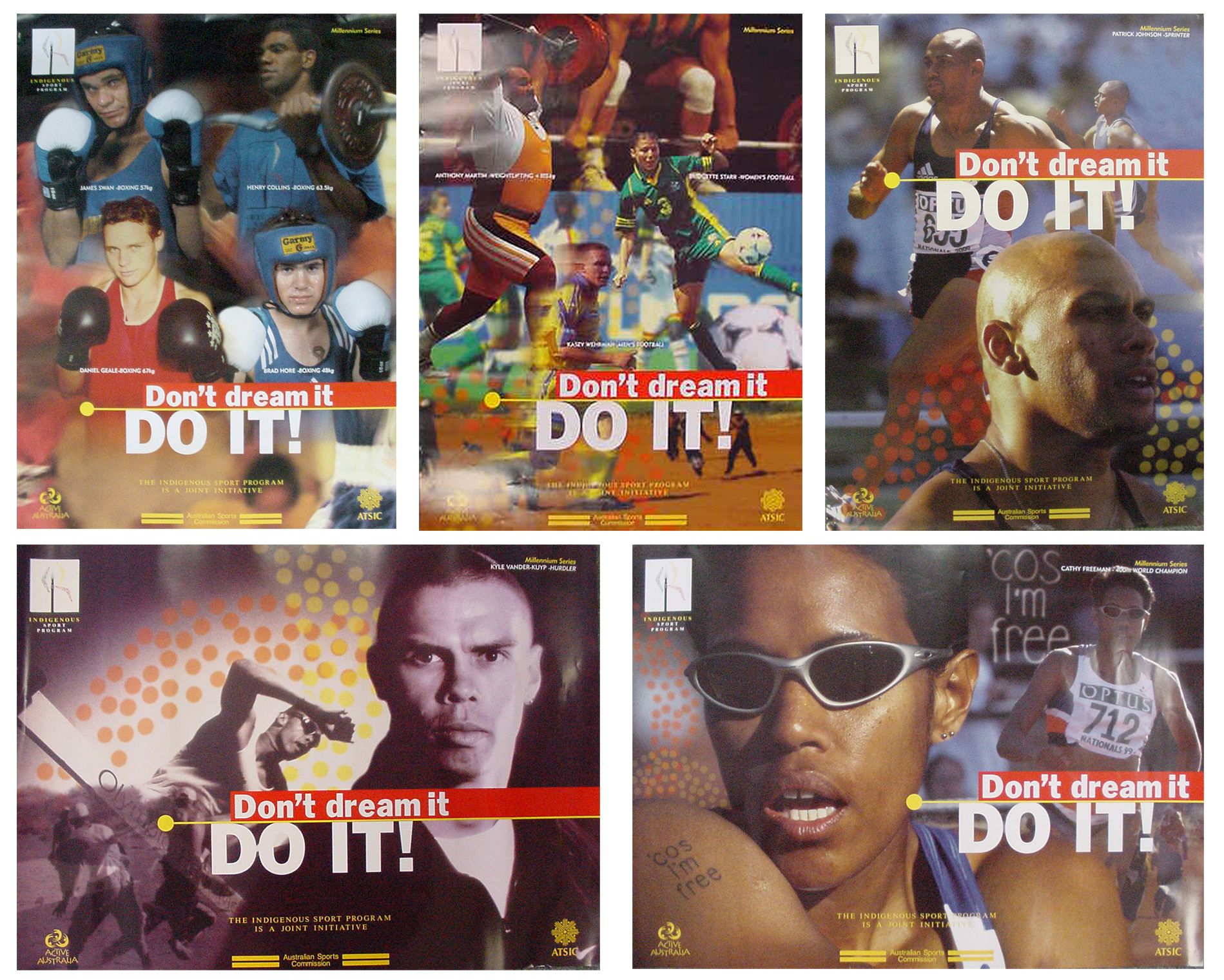
“From athletes participating in the games and winning medals, and Cathy of course but then also from the other side.
“From the opening moments of the opening ceremony where hundreds of Arrente and central Australian women come out en masse.
“The thread of Indigenous storytelling through that opening ceremony, co-ordinated by Stephen Page and many others, people just went ‘yes, that is it’.
“I think that carried on through the whole of the games, and then when Cathy wins the gold medal it’s just the cream on the cake.”
And John Paul has his own piece of history to remember that moment and Sydney 2000.
“A friend of a friend of a friend knew either a) I’m a hoarder or b) I’m a collector, and managed to be able to grab some of the Olympic running track that was ripped up after the Stadium Australia refurbishment so I’ve got a piece of the Olympic track,” he said.
“They say it’s actually the lane that Cathy Freeman ran in. I don’t know for sure but that’s my story and I’m going to stick with it.
“It’s a nice piece of Olympic history, and importantly a nice piece of history that links back to the great Catherine Freeman.”
But while Cathy Freeman’s win is remembered as one of the highlights of Sydney 2000, she wasn’t the only Indigenous athlete to represent the country.
Kyle Vander Kuyp and Patrick Johnson talk to NITV about their Sydney Olympics experience.
Kyle Vander Kuyp and Patrick Johnson talk to NITV about their Sydney Olympics experience.
Nova Peris, Kyle Vander Kuyp and Patrick Johnson all represented the country in athletics, Kasey Wehrman and Bridgette Starr played soccer at the games, Anthony Martin competed in weightlifting and the boxing hopefuls included James Swan, Henry Collins, Daniel Geale and Bradley Hore.
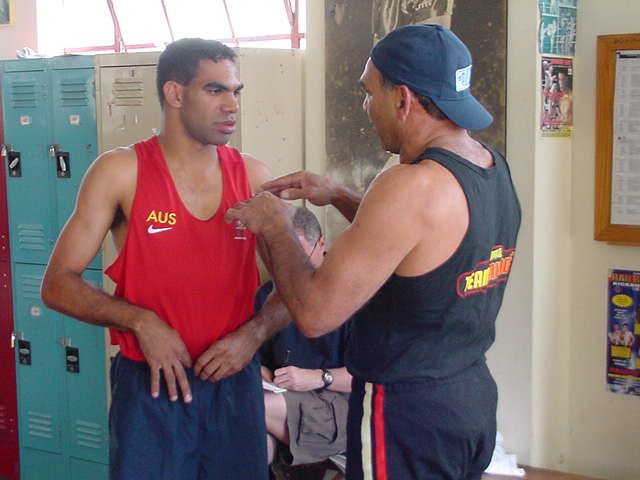
Henry Collins with boxing coach Anthony "Tony" William Mundine OAM
Henry Collins with boxing coach Anthony "Tony" William Mundine OAM
Unfortunately Bradley Hore’s Sydney Olympics experience was “over before it began” when he was disqualified after failing to make weight. He was just 18 years old and said if nothing else, the experience was an ‘eye-opener’ for him.
"My Sydney Olympics wasn't that good at all,” the Dunghutti man said.
“I qualified in the Oceanias about three or four months before the Olympics and I had a growth spurt and put a bit of muscle on during the training and I failed to make weight at the Sydney Olympics.
"But that only made me stronger, then I got to focus on Athens. I didn't really like the name of my being a Sydney Olympian when I hadn't really fought at the Sydney Olympics.
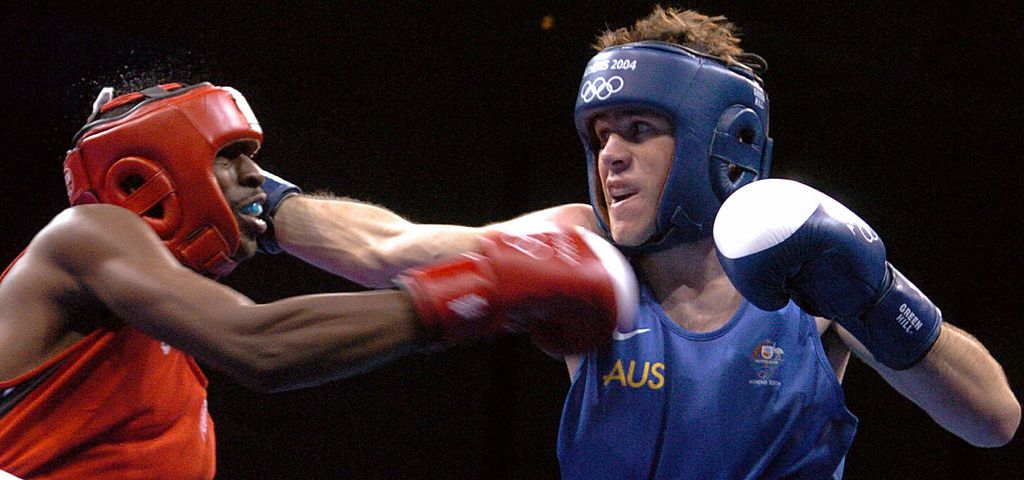
Ron Siler (L) of the USA and Bradley Hore (R) during their Olympic Games preliminary Fly (51) match at the Peristeri Boxing Hall 17 August 2004 in Athens. JOE KLAMAR/AFP via Getty Images
Ron Siler (L) of the USA and Bradley Hore (R) during their Olympic Games preliminary Fly (51) match at the Peristeri Boxing Hall 17 August 2004 in Athens. JOE KLAMAR/AFP via Getty Images
"I was there but got disqualified, then worked towards another Olympics where I went yes, now I'm going to class myself as an Olympian.”
But Bradley said he has also has great memories of the Sydney Olympics.
“Being an 18-year-old, I was walking around not far away from these great athletes,” he said.
“You’d be sitting having dinner by yourself and the next thing someone pops down to have a feed next to you and it’s a big superstar.
“You get starstruck.”
Mr Hore wasn’t the only one starstruck. He remembers that going anywhere outside the Olympic village would mean posing for pictures and signing autographs.
“Sydney was crazy, you couldn’t go anywhere outside that village,” he said.
“I remember a few of us tried to go for a run outside the village and we had to stop every five minutes for a photo - an old-school photo, not selfies back then - or autographs. They had autograph books.
“We said then, ‘we’re just going to have to do training inside the village.’ It was very crazy.”
Twenty years after the Games, it is the roar of the crowd that has stuck with Kaanju man Patrick Johnson, who competed in the 100m, 200m and relay in Sydney.
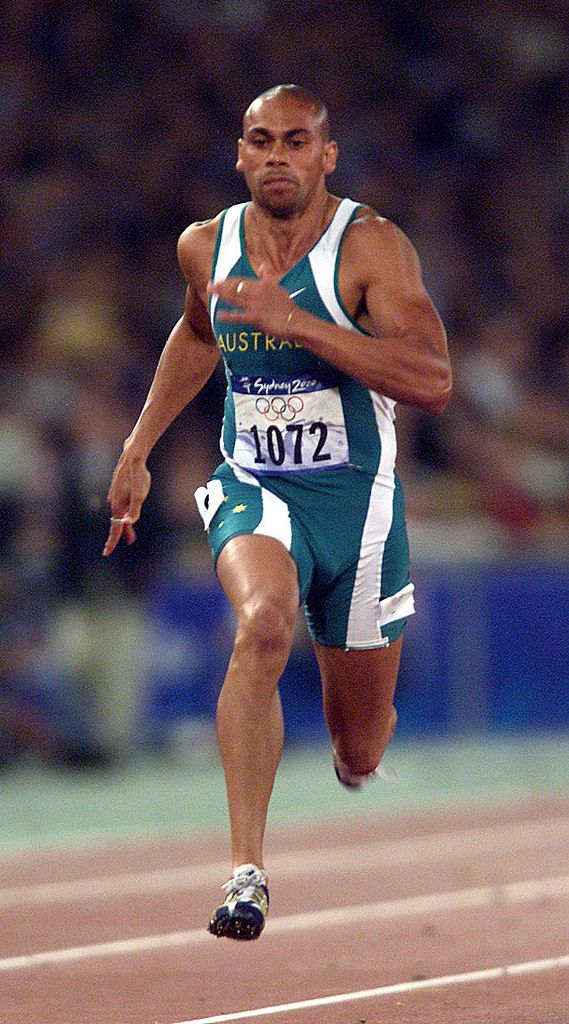
Patrick Johnson of Australia in the second round of the mens 100m during the Sydney 2000 Olympic Games at Olympic Stadium, Sydney Olympic Park, Sydney, Australia. Credit: Adam Pretty/ALLSPORT
Patrick Johnson of Australia in the second round of the mens 100m during the Sydney 2000 Olympic Games at Olympic Stadium, Sydney Olympic Park, Sydney, Australia. Credit: Adam Pretty/ALLSPORT
“I remember my first race in the 100m, I always listen for my name to get called and then I set down and get ready,” he said.
“But because the roar was so loud I thought they forgot to announce my name, but the roar was so loud because they (the crowd) saw that green and gold.
“Then I ran with that little bit of anger but it was also good because it allowed me to go ‘hang on, this is a different reality to anything you’ve ever experienced’.
“It was a home Olympics and nearly every Australian was watching and supporting you.”
Sydney 2000 was Patrick’s first Olympics too, and he said he learnt important lessons from the experience.
“Looking in hindsight, I could have enjoyed it a lot more,” he said.
“I think I put a lot of pressure on myself because I didn’t know what to expect. I expected to be a world record holder or be the best but I’d only started a couple of years earlier.
“That’s the lessons you learn, especially in elite sport.”
But despite not having a lot of time to relax in between events Patrick said he looks back on the 2000 Olympics with fondness.
“I think Sydney 2000 itself, as my first Olympic games was a great memory,” he said.
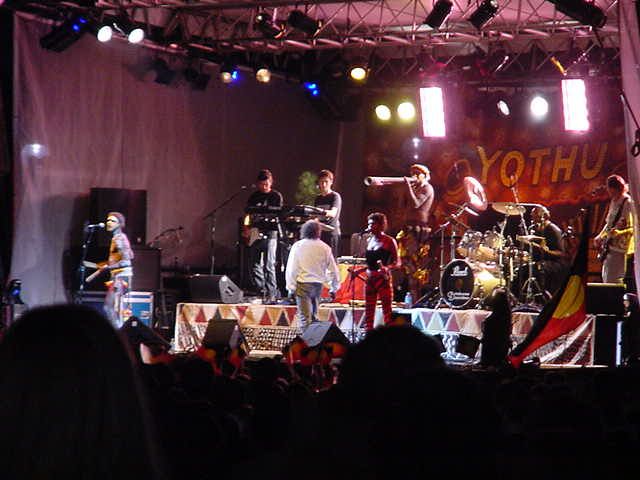
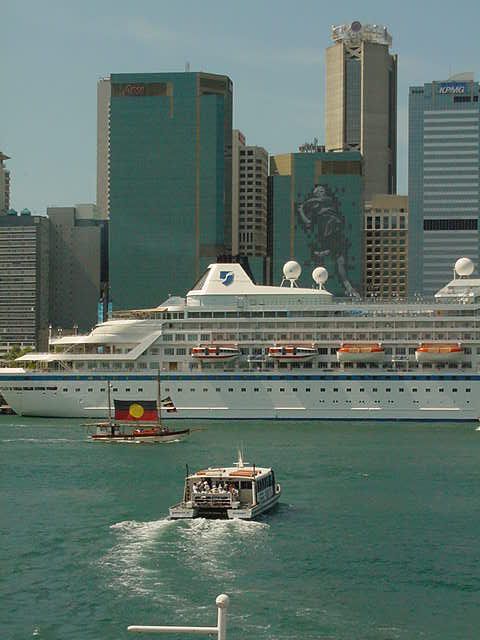
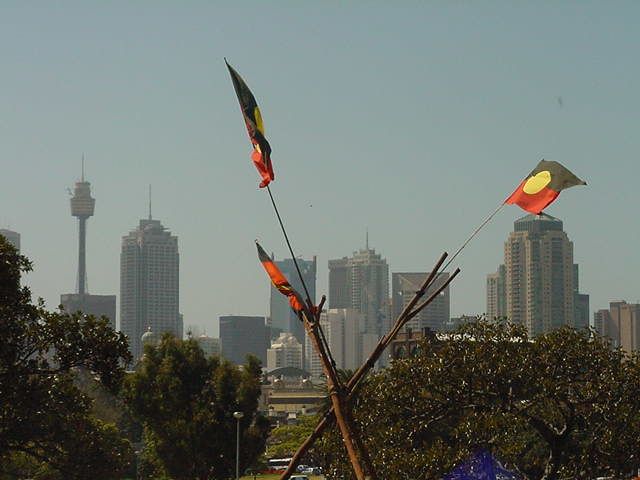
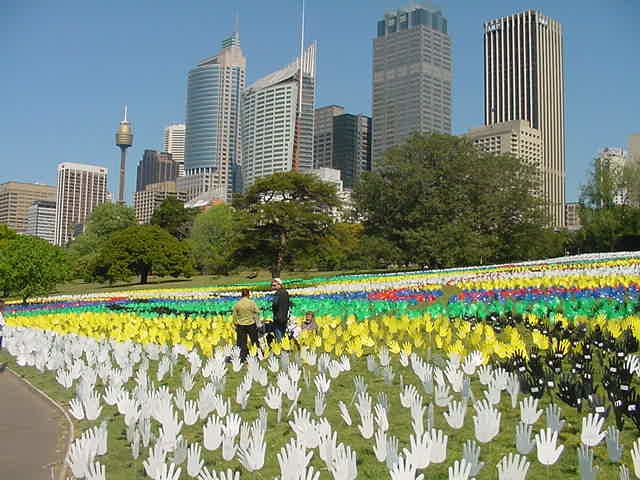




“Your home Olympics is always going to be exciting, for me I ran the 100, the 200 and the relay, so it was all a bit of a blur in a lot of ways because I didn’t really have a chance to sit down and really enjoy it because I was always on every second or third day.
“If you’ve got three events it’s always tough but what a great atmosphere, what a great feeling to represent your country at the greatest show in life, and that’s the Olympic games.”
Watch #ThePoint tonight 8.30pm on NITV (Ch.34) as we look back at the 2000 Sydney Olympic Games and what it meant for our mob.
